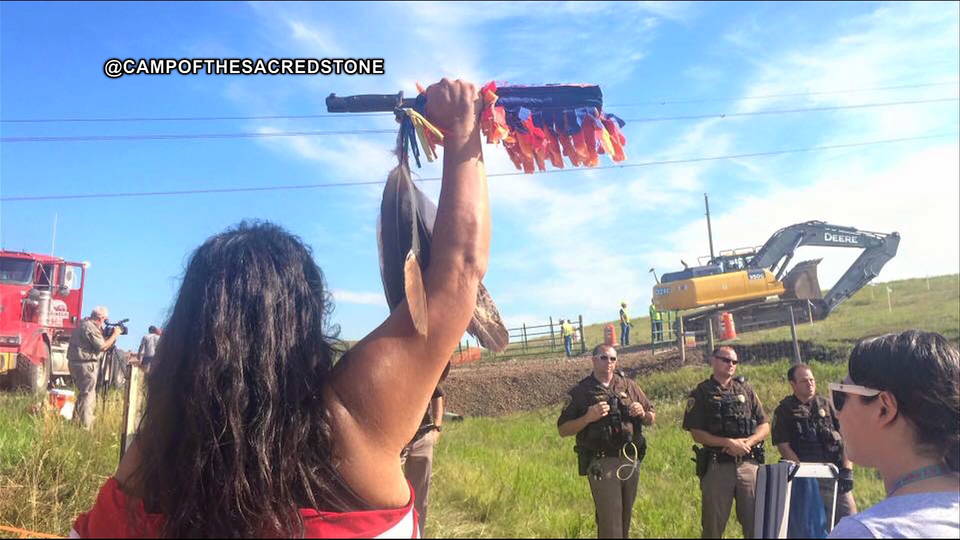Standing Firm at Standing Rock: Why the Struggle is Bigger Than One Pipeline
Sarah Jaffe at Moyers & Company reports:
For indigenous people, the fight to halt the Dakota Access Pipeline is about reviving a way of life.
Human Rights
The entire nuclear fuel chain involves the release of radioactivity, contamination of the environment and damage to human health. Most often, communities of color, indigenous peoples or those of low-income are targeted to bear the brunt of these impacts, particularly the damaging health and environmental effects of uranium mining. The nuclear power industry inevitably violates human rights. While some of our human rights news can be found here, we also focus specifically on this area on out new platform, Beyond Nuclear International.
.................................................................................................................................................................................................................
Sarah Jaffe at Moyers & Company reports:
For indigenous people, the fight to halt the Dakota Access Pipeline is about reviving a way of life.
From IEN:
FOR IMMEDIATE RELEASE
September 27, 2016
Media Contact:
Jade Begay, jade.begay@gmail.com, +1 (505) 699-4791
Where: Media tent, Media hill, Oceti Sakowin camp, North Dakota - live stream available via the Indigenous Environmental Network Facebook page
“The effects of the fossil fuel industry are not limited to the environment. There is a very real human cost that is disparately felt by people of color, and women in particular. When a new extraction project is proposed, the local community bears the brunt of increased violent crime, disappearances, and trafficking. Women are the water protectors, life givers, and backbones of indigenous communities. Our lives and our bodies matter more than a profit margin,” said Tara Houska (Anishinaabe, Couchiching First Nation), the National Campaigns Director of Honor the Earth.
Bill McKibben, founder of 350.org, has published an op-ed in Yes! Magazine, reprinted by Truthout.

As reported by Democracy Now!:
In news from the ongoing struggle at Standing Rock in North Dakota, the Dakota Access pipeline company has bought thousands of acres of land from private landowners just north of the site where thousands of Native Americans representing hundreds of tribes are camped out to resist the pipeline’s construction. The purchase of the land known as Cannonball Ranch includes the sacred tribal burial site that was destroyed by the Dakota Access pipeline company on September 3, when the company’s security guards attacked Native Americans with dogs and pepper spray.